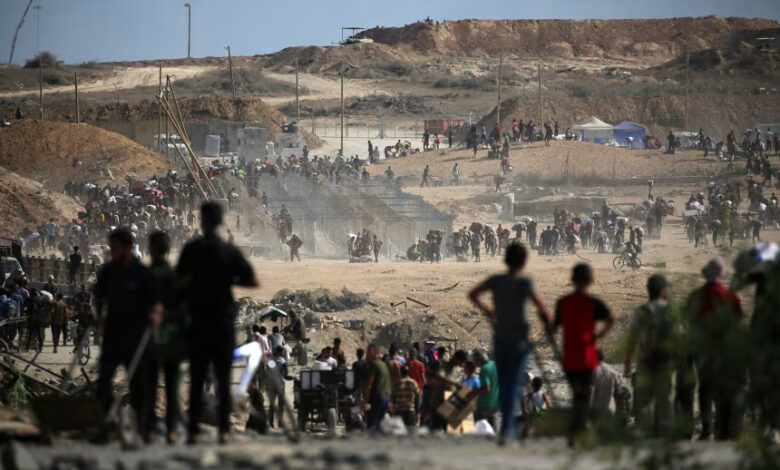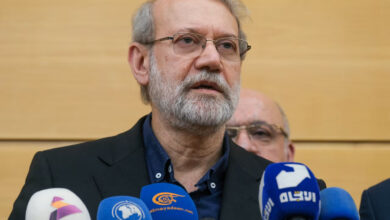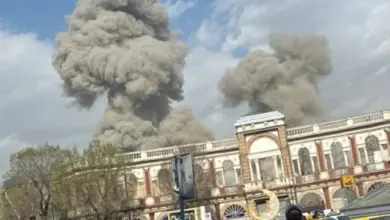
The controversial Gaza Humanitarian Foundation (GHF) will officially close its operations in the besieged territory, according to the organization’s director and two Israeli sources, after suspending its work in Gaza last month at the beginning of the ceasefire.
“We are winding down our operations as we have succeeded in our mission of showing there’s a better way to deliver aid to Gazans,” John Acree, the GHF’s executive director, said in a statement.
The Israeli sources, speaking on the condition of anonymity, disclosed the group’s plan to end operations before Acree confirmed it.
The US- and Israeli-backed foundation operated several sites in southern Gaza and one site in central Gaza, where it began distributing humanitarian aid in late May. But the distribution effort quickly turned chaotic, as desperate Palestinians rushed the fenced enclosures in an attempt to seize the limited food that was available.
According to the United Nations, more than 2,100 Palestinians were killed while seeking aid, including many who were near or en route to GHF sites.
The GHF had plans to expand to more sites across the territory, but those plans never came to fruition. The foundation suspended its operations at the beginning of the ceasefire in mid-October as the US and the international community reverted to the United Nations as the primary means of distributing humanitarian aid.
The GHF says it ultimately delivered more than 187 million meals to Palestinians in Gaza.
Aid distribution turned deadly
The GHF was initially created to replace the UN’s role in Gaza while complying with Israel’s demands that the aid not reach Hamas. Although Israel accused the Palestinian militant group of stealing aid, an internal US government review found no evidence of widespread Hamas theft.
The GHF said it would coordinate with the Israel Defense Forces but that security would be provided by private military contractors. The UN refused to participate in the GHF’s operations due to concerns about a lack of independence from the US and Israel and heightened risks for Palestinians.
GHF distribution sites in southern and central Gaza numbered far fewer than the hundreds under the UN’s previous model, forcing massive crowds of starving Palestinians to gather at limited locations.
Palestinian authorities and witnesses also accused Israeli forces of fatally shooting dozens of civilians near one of the GHF’s aid sites in Rafah in southern Gaza across multiple days in June.
A CNN investigation into one of those deadly incidents indicated that the Israeli military opened fire on crowds of Palestinians as they tried to get food.
A controversial organization
Reaction to the GHF’s closure has been mixed.
US State Department deputy spokesperson Tommy Pigott said Monday, “GHF has shared valuable lessons learned with us and our partners.”
“GHF’s model, in which Hamas could no longer loot and profit from stealing aid, played a huge role in getting Hamas to the table and achieving a ceasefire,” he said in a post on social media. “We thank them for all that they provided to Gazans.”
But Hamas welcomed the GHF closure, calling it “a deserved step” for a project that “engineered starvation” in partnership with Israel.
“Since it entered the Strip, this organization has constituted part of the occupation’s security apparatus, through its adoption of distribution mechanisms that have nothing to do with humanitarianism, and its creation of dangerous conditions that are degrading to the dignity of the hungry among our Palestinian people as they attempt to obtain a morsel of bread,” Hamas said in a press release Monday. It called on international legal bodies to hold GHF to account for its “crimes against” Palestinians.
This story has been updated with additional developments.
CNN’s Eyad Kourdi, Jeremy Diamond, Mohammad Al-Sawalhi, Abeer Salman, Mostafa Salem, Nadeen Ebrahim, Oren Liebermann, Kareem Khadder and Ibrahim Dahman contributed to this report.




